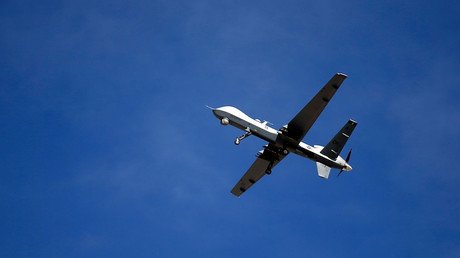A federal appeals court has rejected a freedom of information lawsuit brought about by the American Civil Liberties Union, ruling that the government doesn’t have to disclose the victims of CIA “targeted killings” by drones.
The US Court of Appeals for the District of Columbia Circuit last week upheld a lower court’s 2013 dismissal of a Freedom of Information Act (FOIA) request. The request, made by the American Civil Liberties Union (ACLU), was filed in an attempt to obtain records on the use of military drones, such as intended targets, locations, and how many people died from the strikes.
The Central Intelligence Agency (CIA) argued that the requested documents are exempt from FOIA disclosure because of their sensitive nature, an argument which the lower court had accepted in their summary judgment.
After reviewing a classified affidavit by the agency, the appeals ruled in favor of the CIA and upheld the lower court’s judgment. The court also agreed with the agency and said that there are no "segregable portions" of the documents which could be disclosed.
“The affidavit ‘amply demonstrates’ that the undisclosed information pertains to intelligence activities and foreign activities, and that disclosure could reasonably be expected to damage national security,” the appeals court said in its unanimous opinion, according to ABA Journal. “There was no need for the district court to conduct an in-camera review of the documents because CIA affidavits established that the records were properly classified.”
Initially, the CIA refused to even confirm the existence of the documents that the ACLU had been requesting, prompting the appeals court to force the agency to file a confidential index of drones documents with the lower court in May 2013, which identified thousands of records related to drone killings.
That 2013 opinion was written by DC Circuit Judge Merrick Garland, who is currently a nominee for the Supreme Court opening caused by the death of Justice Antonin Scalia.
"As it is now clear that the Agency does have an interest in drone strikes, it beggars belief that it does not also have documents relating to the subject,” Garland wrote at the time.


